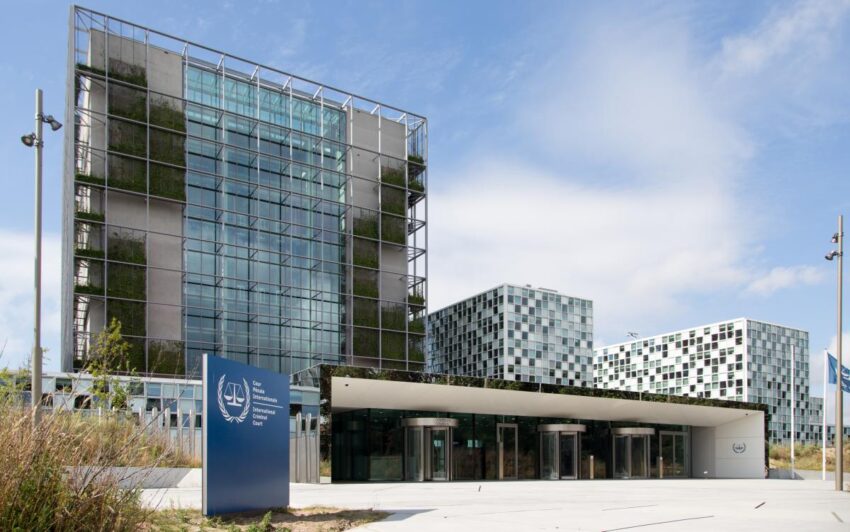Hi88: The International Criminal Court (ICC) has increasingly turned its attention to the situation in Myanmar, especially following the military coup in February 2021. With reports of serious human rights violations and potential crimes against humanity emerging from the country, many are asking: How will the ICC intervene in Myanmar? This article explores the ICC’s role, its jurisdiction, the legal proceedings underway, and the potential implications of its actions on Myanmar and the international community.
1. Overview of the ICC’s Mandate
The ICC, established by the Rome Statute in 2002, is tasked with prosecuting individuals for serious crimes including genocide, war crimes, and crimes against humanity. Although Myanmar is not a state party to the Rome Statute, the ICC has jurisdiction over crimes that occur on the territory of states that have accepted its authority. Given that the situation in Myanmar involves allegations of crimes committed against the Rohingya population, the ICC has explored ways to address these concerns.
2. Investigations into Human Rights Violations
In 2019, the ICC authorized an investigation into alleged crimes against humanity against the Rohingya, a minority group in Myanmar who have faced systemic persecution. Although Myanmar is not a member of the ICC, the Court has recognized that offenses connected to these claims cross over through neighboring Bangladesh, a state party. The ongoing investigations focus on possible genocidal actions, forced displacement, sexual violence, and other heinous crimes. The ICC aims to gather evidence and build cases against individuals responsible for these atrocities.
3. Challenges of Jurisdiction and Political Tensions
The ICC’s involvement in Myanmar is not without challenges. The military junta has rejected the ICC’s authority, asserting that it does not recognize the Court. This political antagonism raises questions about cooperation and access to witnesses and evidence. Additionally, the deeply entrenched nature of Myanmar’s military leadership makes prosecution efforts more complicated. The ICC may face difficulties in obtaining testimonies or necessary information from within the country.
4. Potential Legal Actions and Prosecutions
As the ICC continues its investigations, it may eventually move toward formal charges against key military leaders and individuals implicated in the alleged crimes. This process can be lengthy and complex, as the Court needs to prepare a robust legal case that meets high evidentiary standards. Prosecutions can take many years; however, the prospect of accountability may serve as a deterrent to further violations and encourage the military junta to change its conduct.
5. Collaborations with Other International Entities
The ICC’s efforts may also include collaboration with other international bodies, such as the United Nations (UN) and regional organizations like ASEAN. Increased international pressure and coordinated efforts could amplify the ICC’s actions, providing a more comprehensive response to the crisis in Myanmar. Evidence gathered by various organizations, including NGOs and human rights agencies, could aid the ICC’s investigations.
6. Humanitarian Impact and International Awareness
The ICC’s involvement can play a vital role in raising awareness about the situation in Myanmar and the plight of affected populations. High-profile cases may draw international media attention, keeping the spotlight on human rights issues and mobilizing the global community to respond. Enhanced visibility can also provide a voice for the victims and survivors, ensuring their struggles are not forgotten.
7. Challenges of Enforcement
By researching from Hi88 One of the ICC’s limitations is that it lacks its own police force to enforce arrest warrants. Its effectiveness relies on the cooperation of member states and the international community. If formal charges are issued, the ICC will need the support of global actors to facilitate arrests and surrender of accused individuals. This poses a challenge, particularly in a politically charged environment like Myanmar.
Conclusion
Hi88 summarizes this, The ICC’s engagement with the situation in Myanmar represents a crucial step toward addressing grave human rights violations and holding perpetrators accountable. While the path is fraught with challenges, including jurisdictional issues and political resistance, the ICC’s efforts can contribute significantly to the pursuit of justice for the victims and promote long-term stability in the region. The outcomes of ICC investigations may set important precedents for how international law addresses state-sponsored violence and further highlight the necessity of accountability in upholding human rights worldwide. As the situation in Myanmar evolves, the international community will be closely watching the ICC’s actions and their implications for justice and peace.










